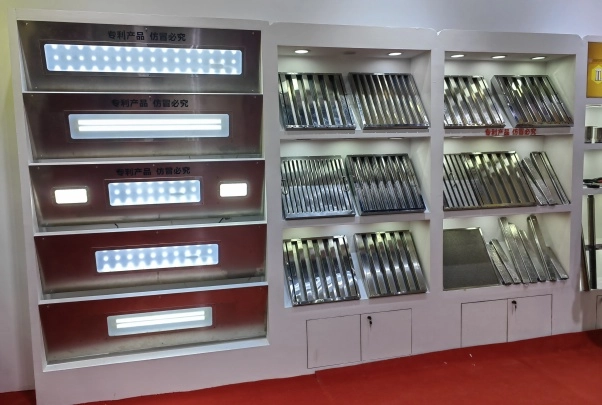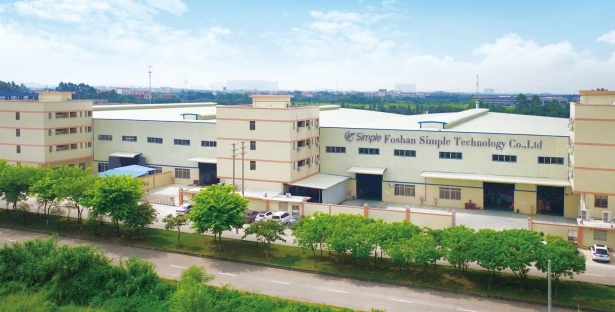5 Days a week from 8:30 am to 5:30 pm
How Baffle Filters Utilize Science to Separate Grease Effectively?
Baffle filters use science to catch grease in kitchen air systems, keeping air fresh and spaces safe. Their clever design and physics make them better than other filters. This guide explains how they work, their benefits, and how to care for them. Find out why SIMPLE is a trusted source for top-notch baffle filters, ideal for restaurants and homes.
What Are Baffle Filters and How Do They Work?
Baffle filters are key parts of kitchen air systems, built to trap grease from cooking fumes. Their special shape and scientific ideas make them very good at keeping air clean and systems safe. These filters have rows of linked metal plates, often made of sturdy steel, set in a wavy pattern. The plates, or baffles, form tight paths that make air twist quickly. The design has smooth surfaces and holes for draining, letting caught grease flow into trays. This setup traps grease well while keeping air moving. Filters like SIMPLE’s stainless steel grease filter are made to last and clean easily. When greasy air enters a baffle filter, the wavy paths force it to turn sharply. Grease bits, heavier than air, can’t follow these quick changes. They hit the baffle surfaces and stick. The air moves on through the filter, leaving grease behind. This process, driven by air movement, keeps exhaust clean and stops grease from building up in pipes. Baffle filters work better than old mesh or aluminum filters. Their shape catches more grease, keeping pipes cleaner. Smooth surfaces lower fire risks compared to mesh filters, which can clog. The baffles drain grease easily, making cleaning simple. Sturdy steel resists rust, lasting longer than other materials. These strengths make baffle filters perfect for busy restaurant kitchens and tough settings.
Why Is Grease Separation Important in Ventilation Systems?
Catching grease well is vital for safe and smooth kitchen air systems. It affects air freshness, equipment life, and fire safety. Grease bits in cooking fumes can dirty indoor air, causing bad smells and health issues. Baffle filters trap these bits, ensuring cleaner air stays in the kitchen or goes outside. This makes the space better for workers and guests, especially in restaurants. Cleaner air also reduces stress on air systems, improving their work and lifespan. Grease buildup in pipes and hoods is a big fire danger. Baffle filters catch grease before it reaches the pipes, lowering the chance of flammable piles. Their design follows fire safety rules, making them a top choice for restaurant kitchens. By handling grease well, baffle filters help stop costly and risky fires, keeping workplaces safer.
How Does Science Drive the Efficiency of Baffle Filters?
Baffle filters work so well because of scientific ideas that improve grease capture and air flow. These ideas make them a great choice for kitchen air systems. The filters use the science of air movement. As air passes through the filter’s tight, wavy paths, it makes quick turns. Grease bits, being heavier, can’t keep up with these shifts. They crash into the baffle surfaces and stick, while lighter air moves on. This action ensures good grease capture without blocking the filter. Another force, called spinning force, helps baffle filters work better. As air curves through the baffle paths, it spins. This force pushes heavier grease bits outward, making them hit the baffle walls. The grease drips into trays, leaving the air cleaner. This method lets baffle filters handle lots of greasy air well. The material, usually sturdy steel, boosts filter performance. Steel doesn’t soak up grease, reducing fire risks. It also resists rust, lasting a long time. The smooth surface helps grease drain, making cleaning easier. Products like SIMPLE’s oil grease filter use top-quality steel for great results.
What Maintenance Practices Enhance the Longevity of Baffle Filters?
Good care is crucial to keep baffle filters working well and lasting longer. Regular upkeep ensures steady performance and safety. To clean baffle filters, start by taking them out of the hood. Make sure the system is off. Soak them in hot water with dish soap or a safe cleaner for 10–15 minutes to loosen grease. Gently scrub with a soft brush or sponge, avoiding rough tools that might scratch. Rinse well with hot water and let them air-dry or wipe with a cloth. Many filters, like SIMPLE’s commercial grease filter, can go in the dishwasher for ease. Clean filters weekly or more in busy kitchens to stop grease buildup. Avoid mistakes like using harsh cleaners, which can harm steel. Skipping regular cleaning lets grease pile up, lowering efficiency and raising fire risks. Filters must sit upright to drain grease properly. Don’t forget to empty drainage trays often to avoid spills. Good care makes filters last longer and keeps air systems working well.
Why Choose SIMPLE as Your Reliable Baffle Filter Supplier?
SIMPLE is a trusted name in kitchen air systems, providing high-quality baffle filters for restaurants and homes. SIMPLE focuses on quality, using top-grade steel to make strong, efficient filters. Their products meet tough safety rules, ensuring fire protection and grease capture. SIMPLE’s dedication to happy customers includes quick support and solid warranties, making them a top pick for kitchen air solutions. Their filters stand out with high-quality steel that resists rust and wear. The baffle patterns catch grease very well. Built-in handles and drainage holes make cleaning easy. The filters work for many kitchen sizes and cooking types. These features make SIMPLE filters, like the industrial grease baffle filter, a favorite for professionals.
Conclusion: Leveraging Science for Efficient Grease Separation
Baffle filters use science—air movement, spinning force, and smart materials—to trap grease well. They keep air fresher, kitchens safer, and air systems efficient. With proper care and top-quality products from SIMPLE, you can get lasting performance. Choose baffle filters to improve your kitchen’s air system and boost safety and cleanliness.
FAQ
What Makes Baffle Filters More Effective Than Other Types?
Baffle filters work better than mesh or aluminum filters because of their wavy design. It uses air movement and spinning force to catch grease well. Their steel build reduces fire risks and is easy to clean, making them stronger and better for restaurant kitchens.
How Often Should a Baffle Filter Be Cleaned?
Clean baffle filters weekly in busy kitchens or every two weeks in lighter-use spaces. Regular cleaning stops grease buildup, keeps air flowing, and lowers fire risks. Adjust based on cooking amount and grease levels.
Are Baffle Filters Good for Home Kitchens?
Baffle filters work great in home kitchens, especially for people who cook greasy foods regularly. They catch grease much better than basic flat filters and don’t need to be replaced as often. While they cost more initially, they save money in the long run. Many home cooks prefer them because they keep kitchen air cleaner and reduce cooking odors. They fit most standard home range hoods and are just as easy to clean as cheaper filters, but work much better at trapping grease and smoke.



